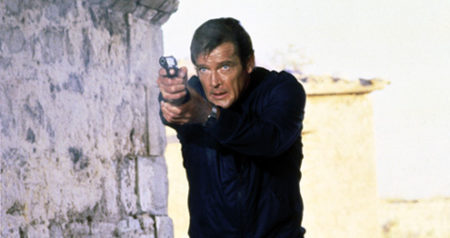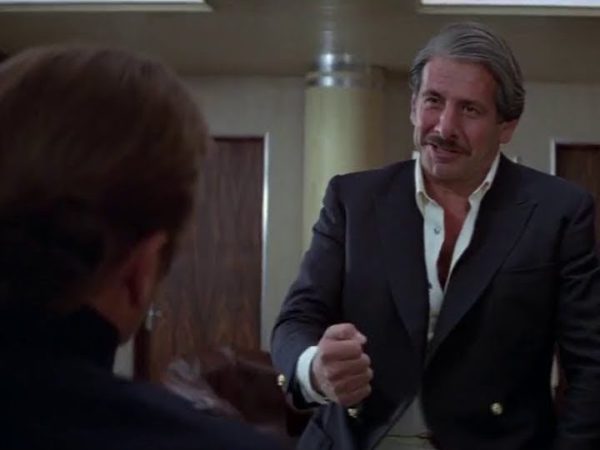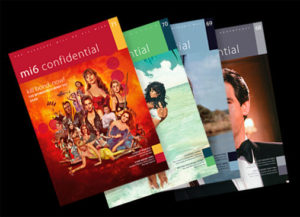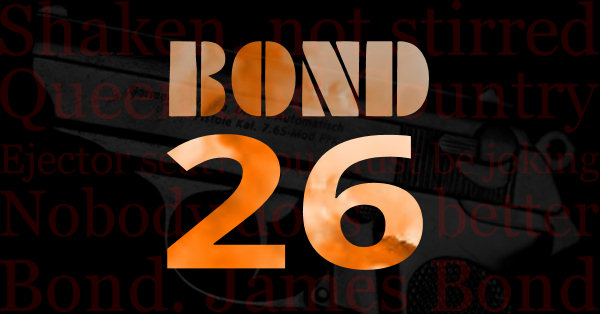Eoghan Lyng looks at the film he considers to be Roger Moore’s finest.

By 1979, the James Bond had become cliché. Whether it was Sean Connery or Roger Moore in the tux, the series had become a revolving door of martinis, mirth and innuendo, delving between brilliant and balderdash in equal measure. In one entry, Bond went underwater; by the next film, he was planning an entry to space. Out of the three men who played Bond, only George Lazenby had tackled it with a modicum of integrity in the genuinely heartfelt On Her Majesty’s Secret Service, exhibiting the importance of character development in the field of espionage.
John Glen had worked on Majesty’s as an editor, and clearly the film left a lasting impact on him, as it was a baseline he would return to with For Your Eyes Only and Licence To Kill, his two strongest efforts. He was hungry for adventure, lumbered with a star who by 1981 was beginning to show signs of detachment to the role. As it happens, Moore recognised the value of the work, and gravitated towards the film’s darker, albeit more soulful, tone.
With For Your Eyes Only, director John Glen and star Roger Moore crash-land back down to earth, in a film that is grittier, and certainly more soulful, to the Lewis Gilbert features that had entertained so many for so long. Like Fleming before them, Glen and Moore walk a thin line between moral decay and jingoistic, celebratory overindulgence, curating a drama that’s high on intrigue, without sacrificing the interpolations that had merited the series as escapism par excellence. Better still, Eyes boasts Moore’s most thoughtful portrayal as Bond, capturing a vulnerability his 1970s features prohibited him from showing. No, this wasn’t The Spy Who Came In From The Cold, but it was a strong step forward both for the series and for the actor in question, who threw out fewer one-liners. Indeed, the film’s silliest moment came from the production team, who chose to insert a still of Margaret Thatcher, celebrating the deeds of her nation’s favourite agent. (Personally, I don’t think the scene is any less daft than Daniel Craig’s cameo at the Olympics, Queen in tow. But hey ho!)
Angular-minded in it’s direction, the film uses two short stories to guide the film, one to provide the backdrop, and the other to give it meat. We have Melania Havelock, deprived of the parents who taught her to swim; we have Aristotle Kristatos, all curved smiles and proverbs, masking his family in his deceptions; and we have Bond, visibly older and sadder looking than he had appeared before.
Unlike Moonraker – which wallowed in excess and senseless action from the first frame to the last – Eyes pays close attention to the film’s central narrative, offering Bond a rare chance to exhibit a form of character arc, and Moore – always a superior actor than he or his critics ever gave him credit for – laces himself remorse, every eyebrow raise more of a reflection of his ineffectuality than his bravura. With Eyes, the journey for Bond is as revealing as it is terrifying and occasionally comic.

He scours the earth, searching for an answer to the crime committed against more than a decade earlier. The women, the snow, the fruits: all a passing reminder of the one woman he would have given it up for. It’s all there in the opening segment, and Moore, barely able to take his eyes off the grave, shows the hurt in a barbed, brusque remark: “It usually is.”
Unlike the colourful nonsense of Octopussy, the pre-credits sequence bears a narrative undercurrent. The film opens on a empty grave, where a man, lost in his thoughts, is bringing flowers. It’s Bond, visiting the body of a woman he deserted to the bullets that were aimed his way. We see Moore, visibly aged since the 1970s, now contemplating his every move. And although it’s never said (a directorial style Sam Mendes would do very well to follow), Bond spends the rest of the film harbouring this guilt. It’s there when he declines coitus (no matter the lady’s age); it’s there when he practices ski-ing, evoking the steps of his younger self; and it’s there when he encounters Melina Havelock, an heiress who bears a striking resemblance to Teresa di Vicenzo, the one woman he can never exorcise from memory. When he hears her desire to avenge her parents, Bond feels duty bound to caution her, using the words of a Chinese philosopher to aid her: “Before setting off on revenge, first dig two graves.”
It being Bond, the film allows an undercurrent of fun into the proceedings, even if the central character is unfamiliar with it. Topol is simply hypnotic as the cigarette-smuggling, gun-toting gangster overlord Milos Columbo, his auburn brown hair etched perfectly over his head, his eyes glinting with glee and general bonhomie. Like Bond, Columbo harbours a dislike of violence, preferring to while away his evenings through brandy and bravado: a penchant for facial hair is what separates Bond from peering at his reflection, a likeness that stems from a mutual taste for adventure and acidity. Columbo’s quest for vengeance contrasts Bond’s journey for self-forgiveness, which likely explains why the sleuth avoids a feverish, even fatal, handshake. “I’ll wait until tomorrow,” Bond whispers, no doubt recalling the last impulsive decision he made (a wedding proposal) that culminated in the most devastating day of his life.

The Moore in For Your Eyes Only is very different from the swaggering lothario of recent times. Considering the storyline and the violent actions that occurred, Moore was occasionally reluctant to acquiesce to some of the demands of the film, not least when it came to kicking a perilously positioned car off a cliff. Pursued by Emile Leopold Locque (played with quiet menace by Michael Gothard), Bond ultimately corners the assailant, before serenading him with a fable and a kick. It was an action George Lazenby could do in his sleep, which didn’t sit easy with the actor, who had spent the best part of a decade exhibiting the talents that belonged to him alone. But coaxed by Glen – who had earned his stripes on the muscular, turbo-charged On Her Majesty’s Secret Service – Moore delivers his most ferocious and arguably his most affecting kill. For once, a quip feels more like resignation than a throwaway line from Groucho Marx’s library.
It’s Ian Fleming distilled, and anticipates the more turbo-charged energy of the Pierce Brosnan era; odds are if you are familiar with either the novels on which the series is based on, or the films that burned through the ominplexes in the 1990s, you’ll find this a most satisfying setpiece. “We wanted to make the new film more of a thriller than a romp,” Glen admitted, “without losing sight of what made Bond famous—its humour.”
Brosnan made himself known on the film-set, by virtue of his wife Cassandra Harris, who was playing The Countess Von Schlaf. He was too young to play Bond, but he made an impression on producer Albert R Broccoli, who cast him in 1994. This wasn’t the only instance in which the film pointed to the future, as is evidence from the action scenes, which were presented in a much more holistic manner to the technological fuelled films that preceded it. Anyone shouting at Bond to “pull out a gadget” were in for a shock, particularly during the mountain-climbing sequence. The joys of watching an older, yet able-bodied, Bond climbing with nothing but his wits to protect him is a joy to see. Here, though, a significant amount of the rock-work was performed by Moore himself, although daunted by the heights, he nursed himself with Valium and beer before the take.
Bond wouldn’t be this unguarded again until Licence To Kill, and that featured Timothy Dalton, who set out to silence critics by throwing himself into as much of the stunts as he could. In some ways, Moore led the way, but did so in a way that was remindful. In this entry, Moore isn’t barrelling ahead of Columbo’s men, but siding as one part of an ensemble. In this picture, he isn’t throwing himself headfirst onto the car that blasts towards him, but sits for the moment to make his mark. And mindful of his age, he politely declines the invitation of coitus, for an ice-cream.
No quips, no eyebrows. Just some sage old words from an agent who has borne the scars of every man he’s killed. From the widower who chased the world for salvation, to the man who enjoys the simple pleasures of another’s company, Moore had never shown this much range in his professional career. The role isn’t simply his finest hour as Bond – it might be the performance of his life.
Much has changed since the 1980s. Bond’s libido, once thought to be an integral part of the franchise, has been replaced by introspection and thoughts about fatherhood. And the title tracks – previously an afterthought of expediency and prudent musicianship – now demand a link to the narrative unfolding before the audience’s eyes. But the franchise, once thought to be a vessel of repetition, is now regarded as a fundamental part of British cinema. And with For Your Eyes Only, the series had a blueprint from which it could hit that target. For Your Eyes Only didn’t need a space laser or a man with a hook to be vital. It just needed soul. And, boy does it have soul.










